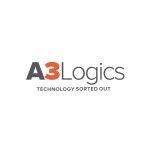An EDI provider is a company that provides organizations with EDI services and/or software, usually in the form of managed or self-service packages. Even though many EDI service providers may focus on certain features or market niches, they all enable businesses to send standardized data between their manufacturers, suppliers, eCommerce sites, and other trading partners.
What are EDI Services?
EDI software enables businesses to exchange digital data between essential systems, improving efficiency and integration into workflows, making it more technologically convenient.
Standardized EDI documents aid in ensuring the transmission and readability of vital information between your business, trading partners, clients, and other participants in your digital ecosystem, whether you are sending a purchase order to a supplier to purchase goods for your store or receiving an invoice for services from a vendor or partner. However, not all EDI support services are made equal, and businesses have a wide range to select from.
10 Key Questions for your EDI supplier
Here are a few questions that you should ask your EDI service provider.
Which integrations and connections are supported?
Assess your company's requirements for EDI Solution connections and confirm if the supplier can assist. Consider integrations between ERP, business systems, and EDI. Consider updating your ERP system if considering an integrated solution. Implement an integrated solution within your ERP for easier monitoring and maintenance.
Which kind of EDI solution—cloud-based or on-premise—do you prefer?
On-premise EDI deployment requires infrastructure and EDI specialists, benefiting companies with few trading partners using the same standards and formats.
When using cloud-based EDI, use an external network for the procedure. This type of EDI setup is suitable for companies with several trade partner connections in different formats and standards, enterprises seeking greater scalability, and companies without EDI experience or internal resources to handle EDI transactions.
Which pricing structure suits you the best?
For internal use, the majority of EDI service providers charge an annual fee if you choose to use an embedded solution. But, you will have to pay for each transaction if you choose to use EDI-managed services, which provide everything from EDI mapping to translation.
Which EDI services are included in the software package?
As an organization grows and business transactions increase, outdated EDI technology becomes less effective. Pre-configured EDI solutions facilitate data interchange, processing messages and sending them to trade partners.
How much downtime and customer service should you anticipate?
Assessing the availability of EDI solutions is crucial for ensuring crucial documents are sent or received, as failure to respond can lead to SLA fines and penalties.
Is the EDI vendor centered around the customer? Is the solution easy to use?
Request a demo from the EDI provider, inquire about available resources, problem resolution procedures, and any necessary adjustments. In an automated platform, EDI mapping and data management need to be simple and efficient, saving you time when it comes to manually organizing data. You should find it simple to use the service and add business partners.
Which EDI solutions are accessible to me?
There are three types of EDI solutions: web-based EDI, EDI service bureaus, and EDI software solutions. EDI software offers flexibility and control, allowing businesses to integrate with back-office systems.
Web-based EDI requires an internet connection and requires manual data entry, offering less control over operations and integration opportunities. EDI services operate as contractors, offering pay-as-you-go models with minimal control over daily operations and data integration with company systems.
Does the EDI provider possess appropriate industry experience?
EDI improves communication efficiency across businesses, varying in automobile, food, and retail sectors. Experienced providers familiar with EDI formats can link businesses with trading partners.
Can you develop with the EDI solution?
An efficient EDI system should facilitate easy expansion of business relationships with suppliers, customers, and warehouses, adapt to changes, and provide an expedited onboarding process for all customers and vendors.
Are there any further services you need?
Your EDI supplier offers services like data mapping, translation, and ERP interaction, which can save time and effort by avoiding multiple vendor visits.
As your company grows, will your EDI in small business be able to assist you in the future if you decide you need a new service, such as master data management, and will the software be simple to interface with those add-on solutions?
Conclusion
Choosing a reliable provider ensures a seamless setup, reduces interruptions, and equips staff for efficient use. Selecting the right EDI service provider is crucial for long-term business objectives and unique requirements.
A3Logics offers EDI integration for modern enterprises, enhancing technology and business processes. Their data transformation capabilities enable swift data sharing with other systems, automating B2B communications.
For more details: https://www.a3logics.com/blog/questions-for-edi-service-provider/






Comments